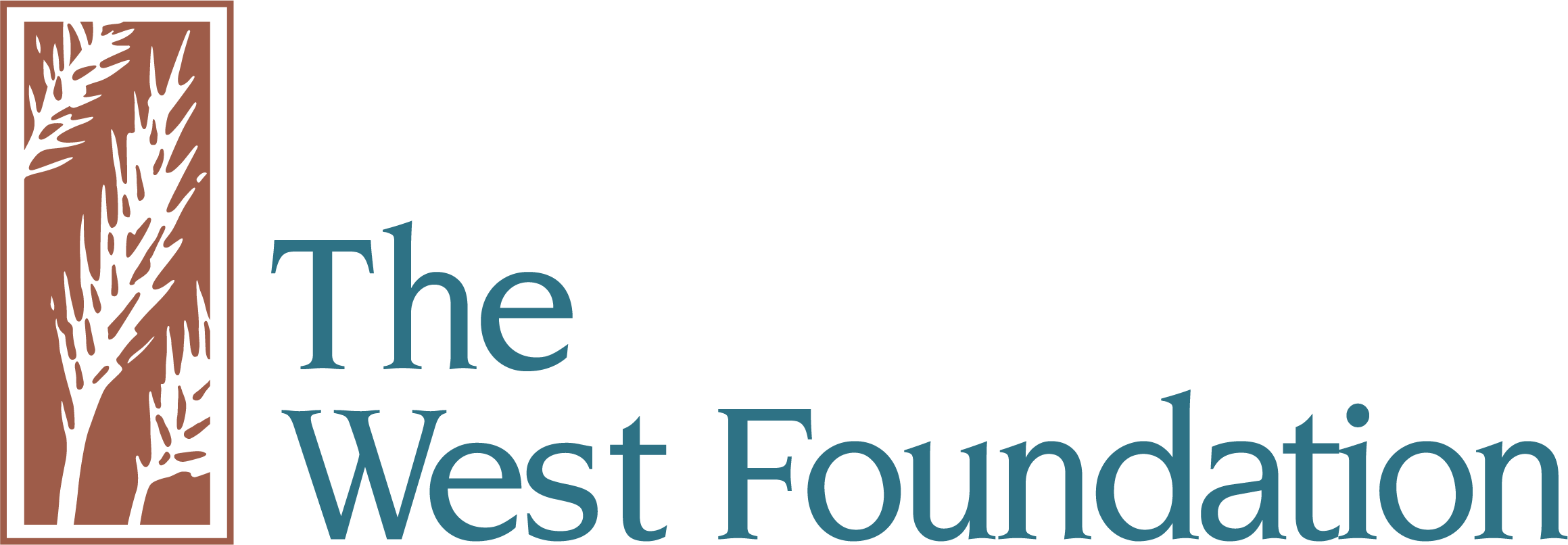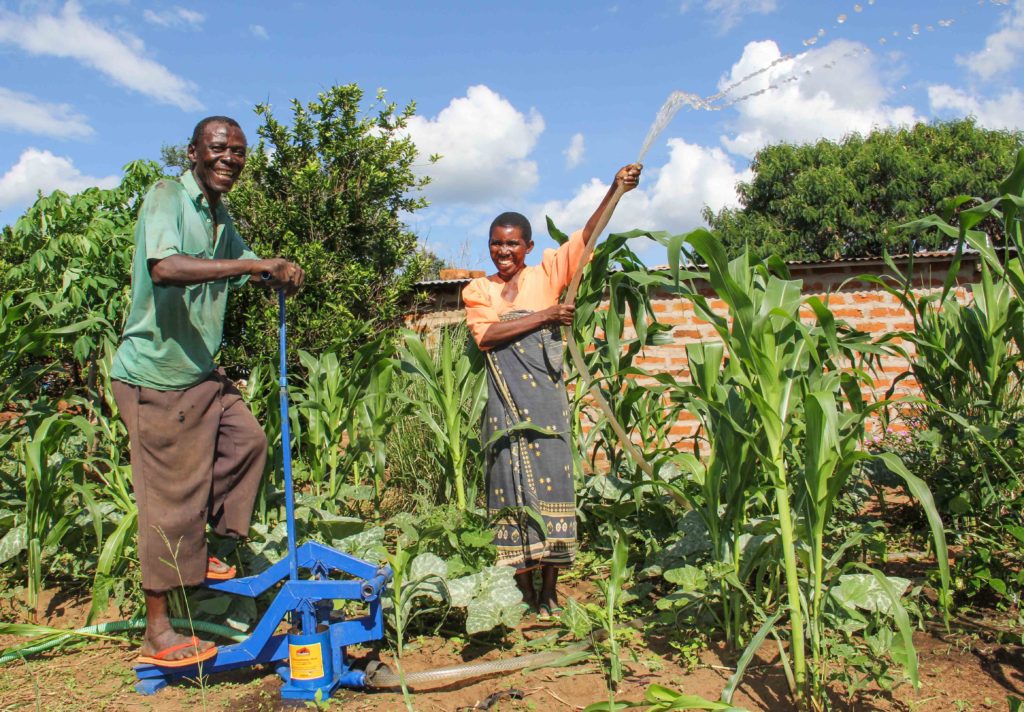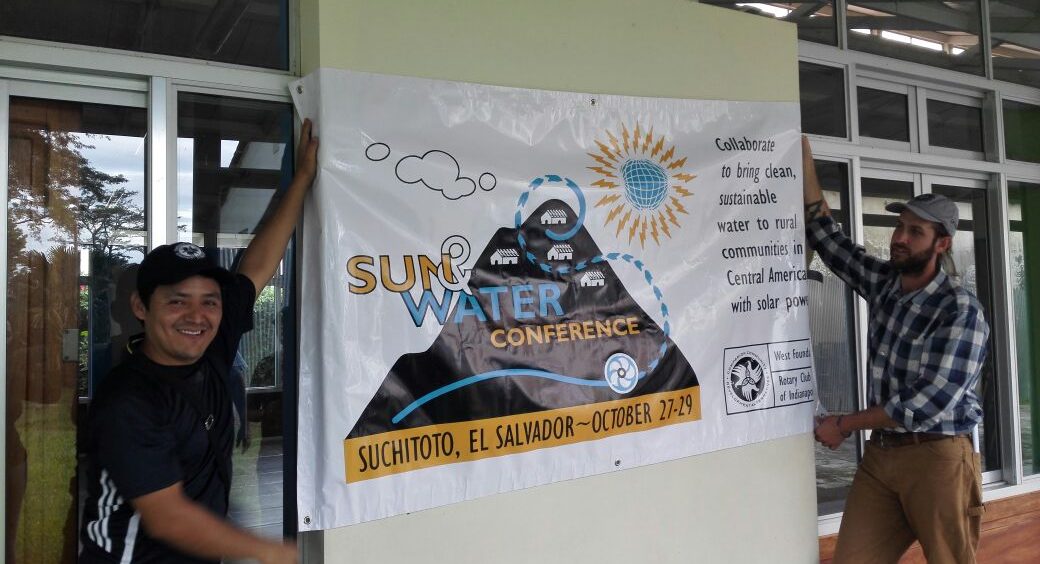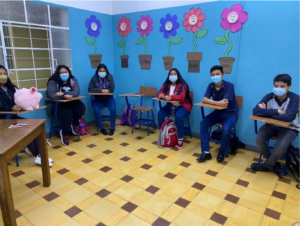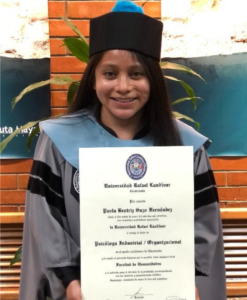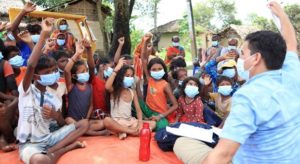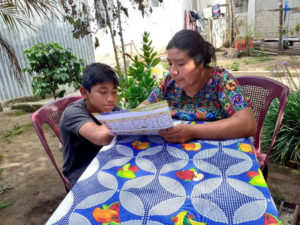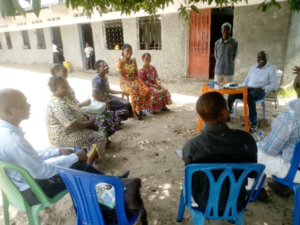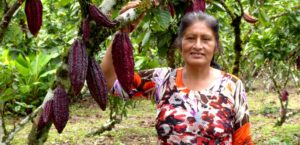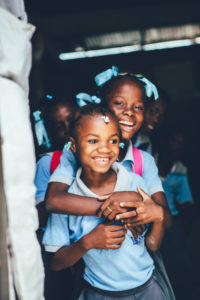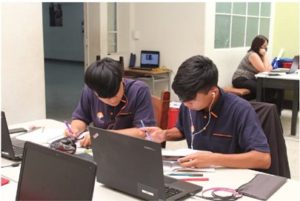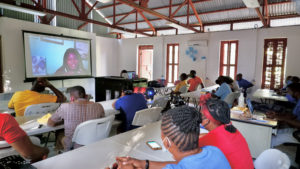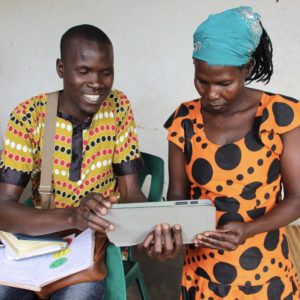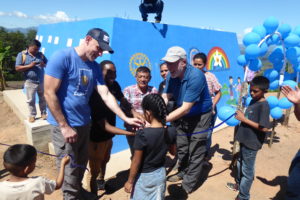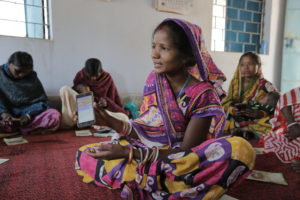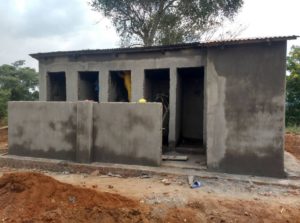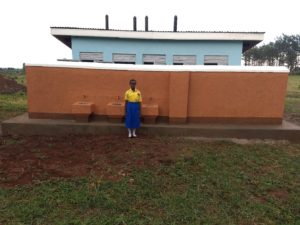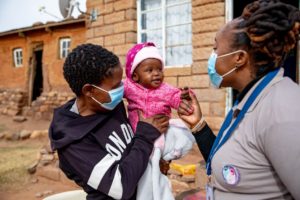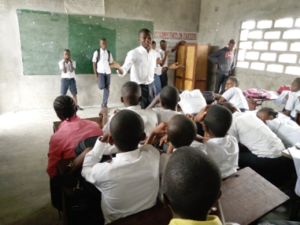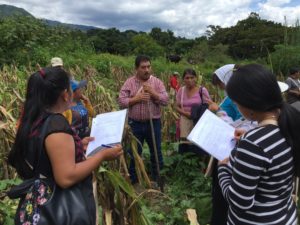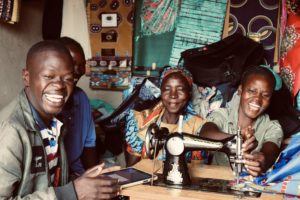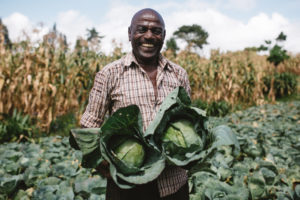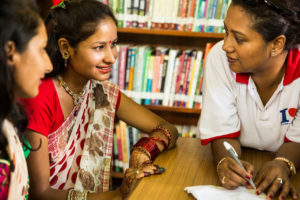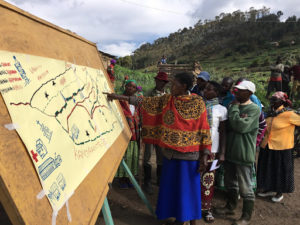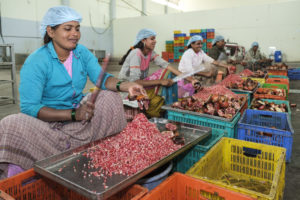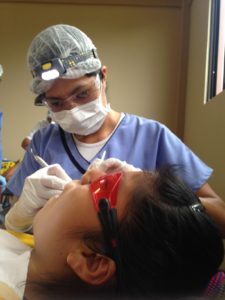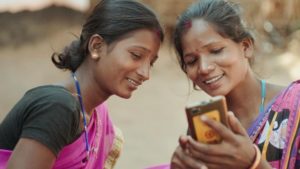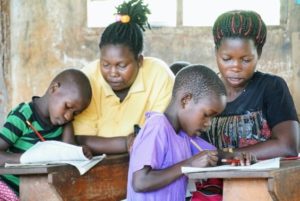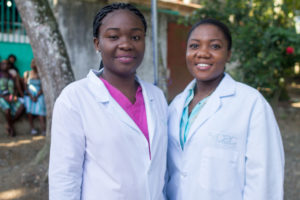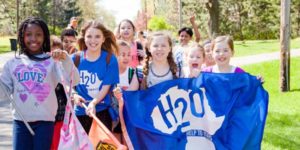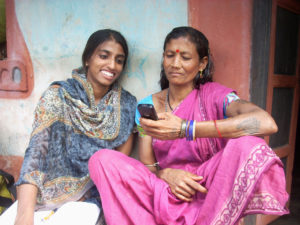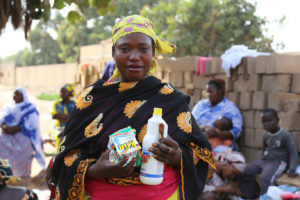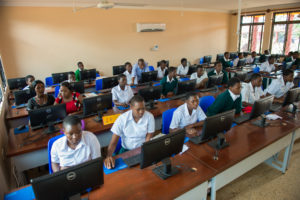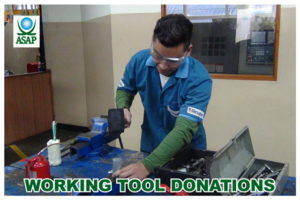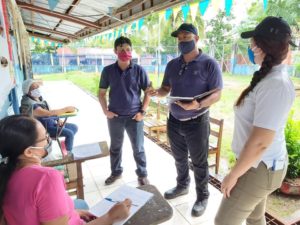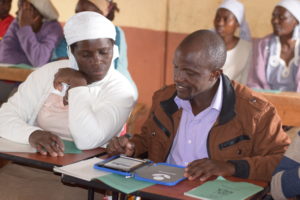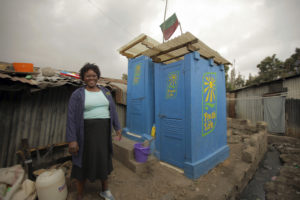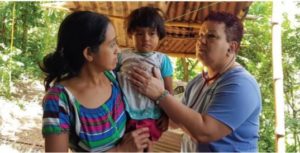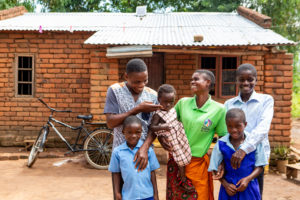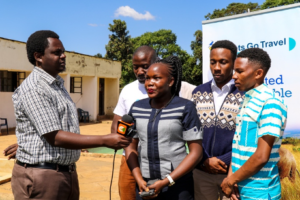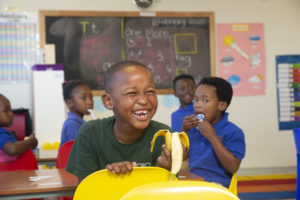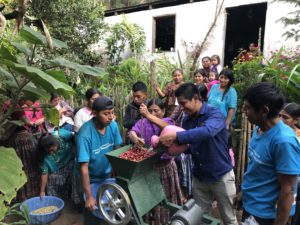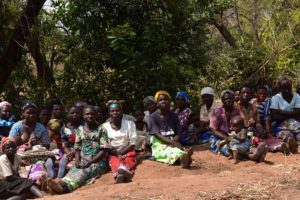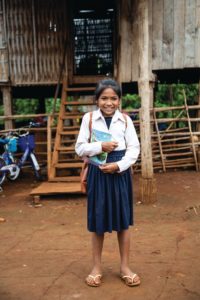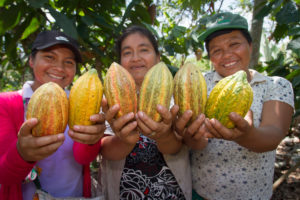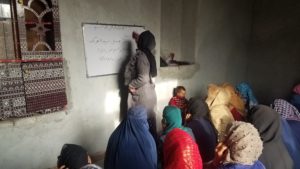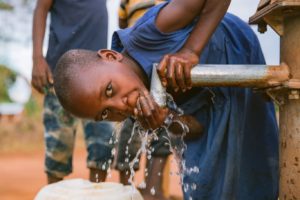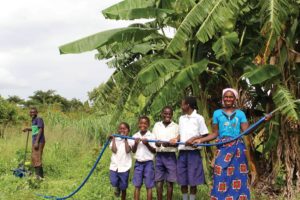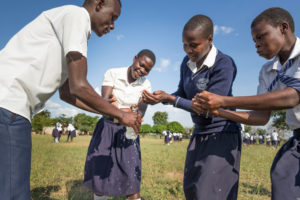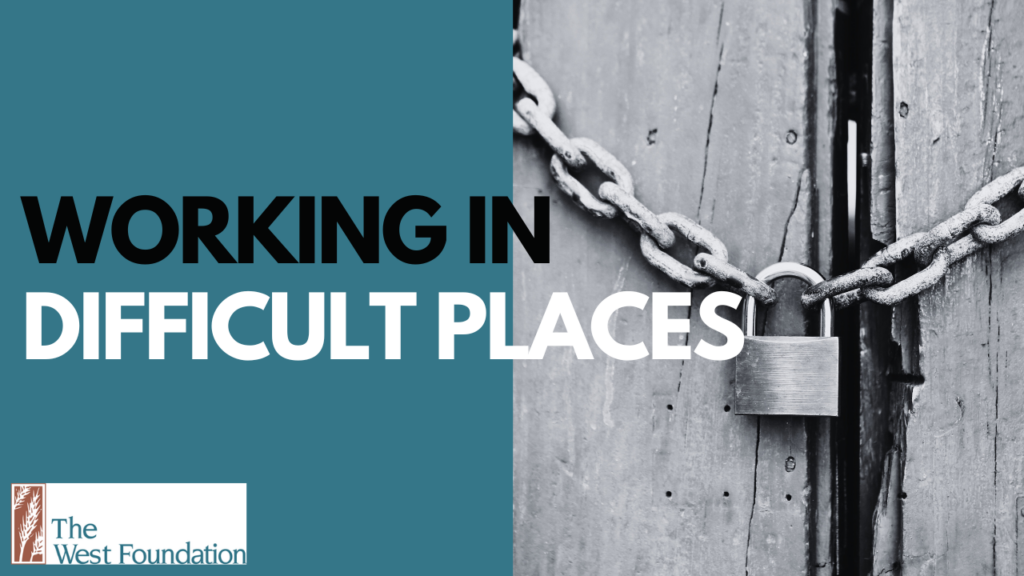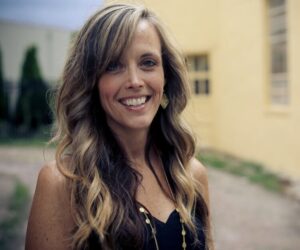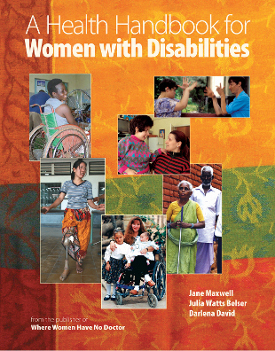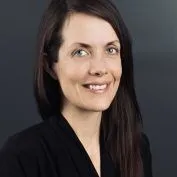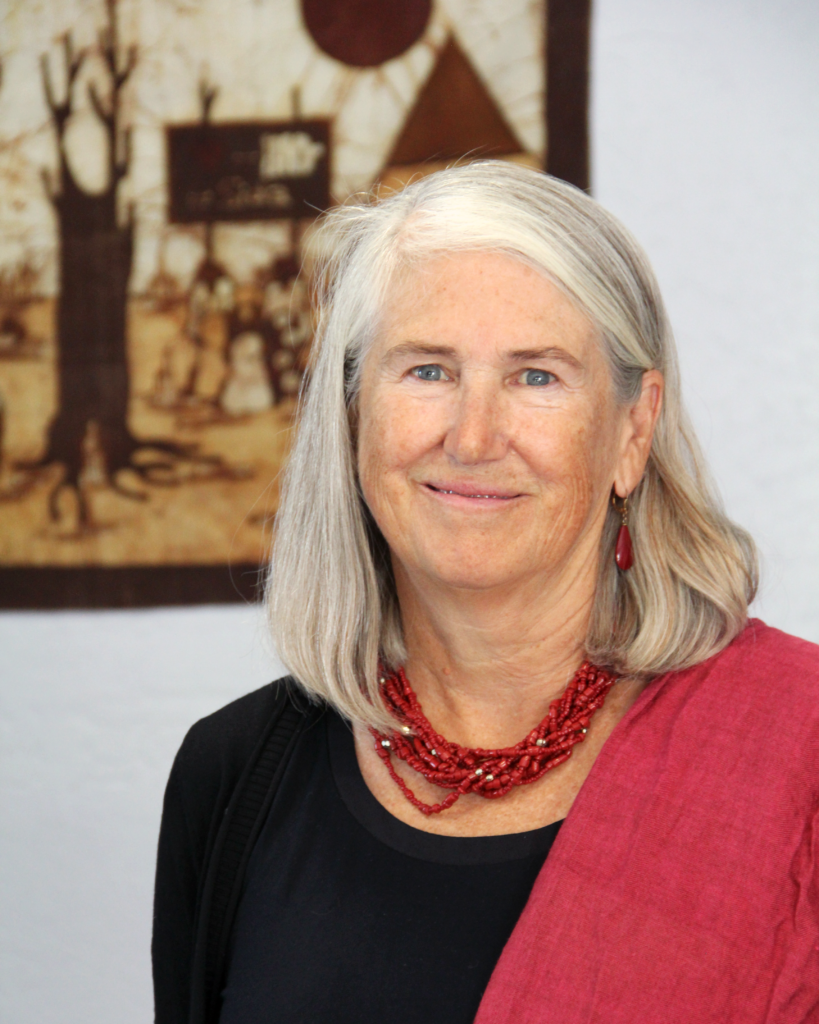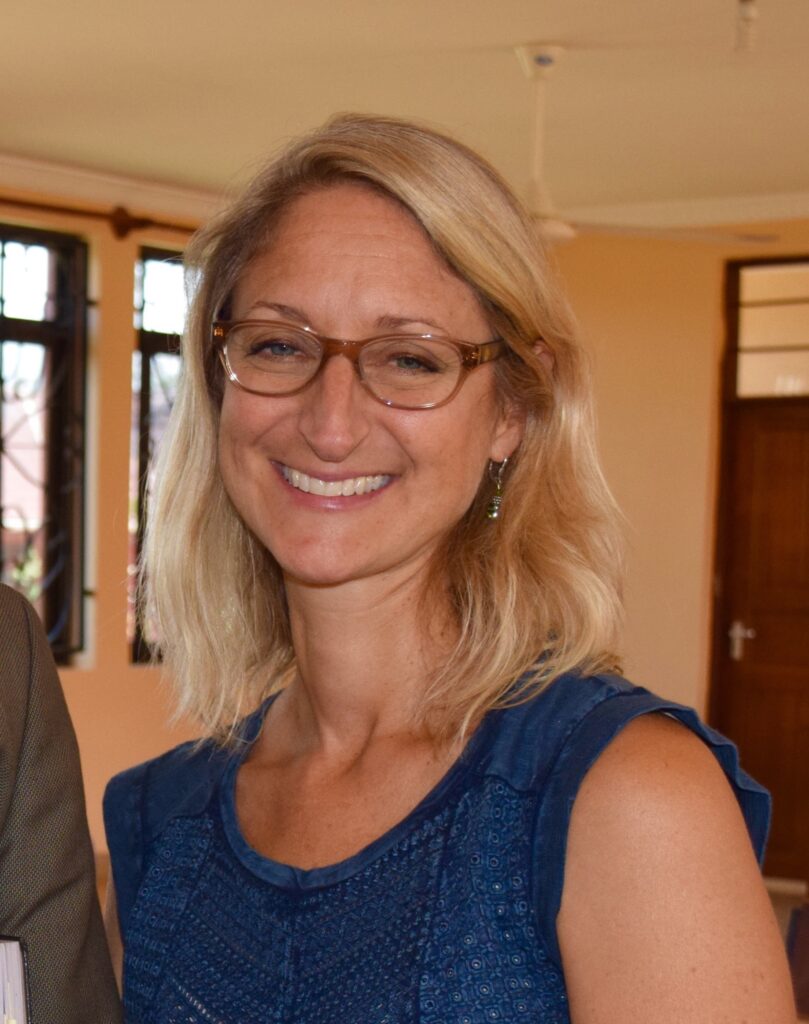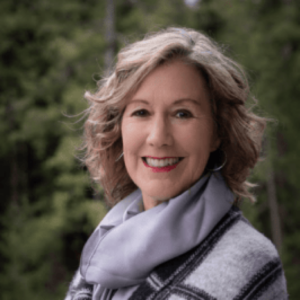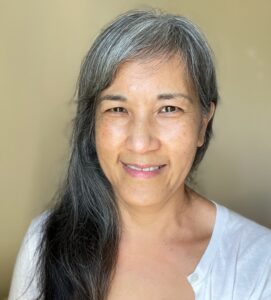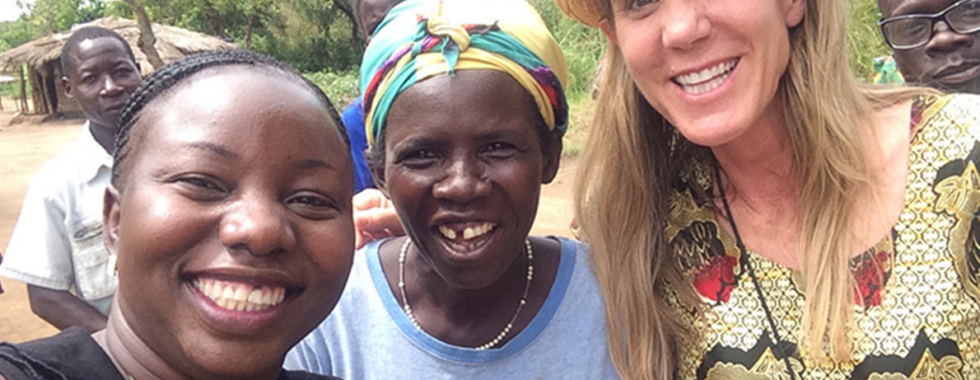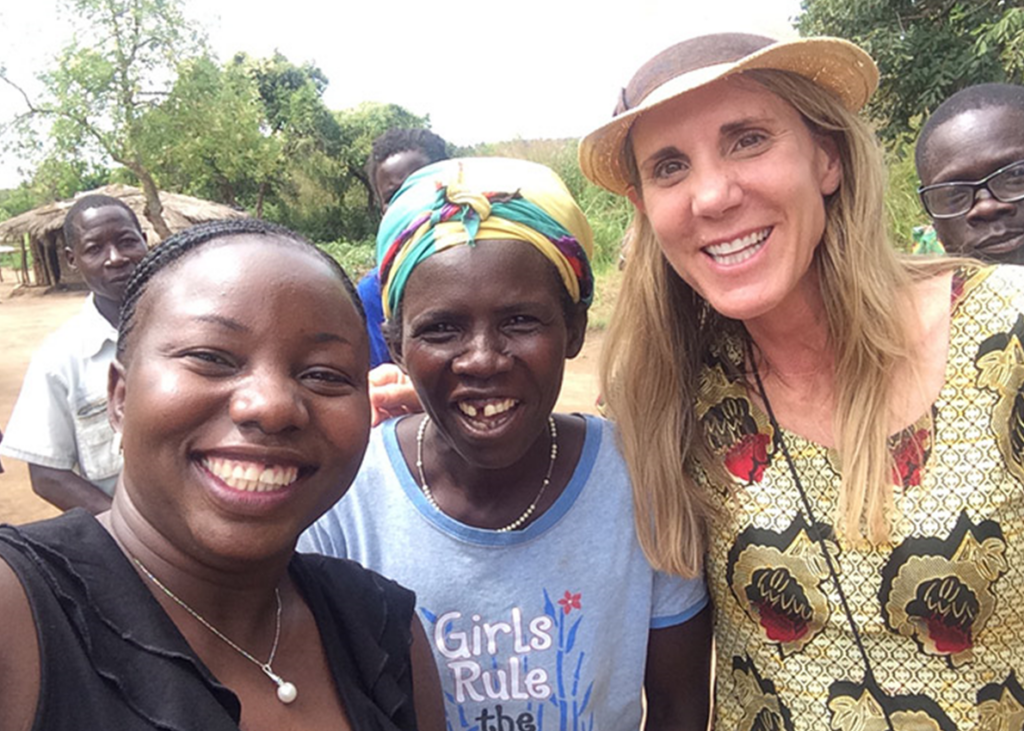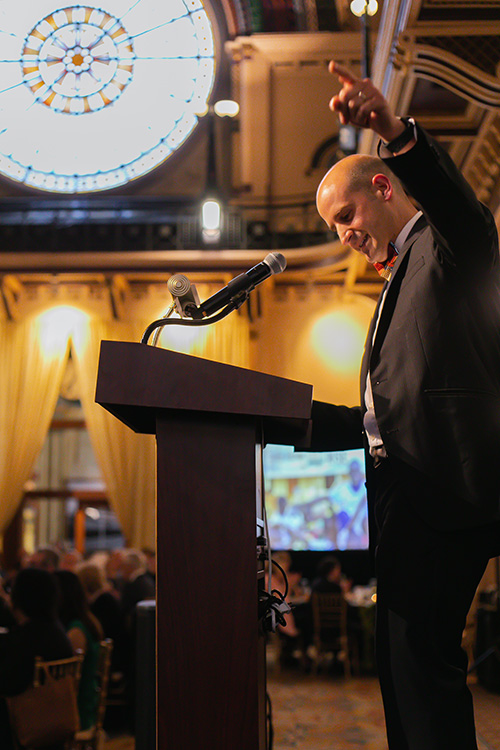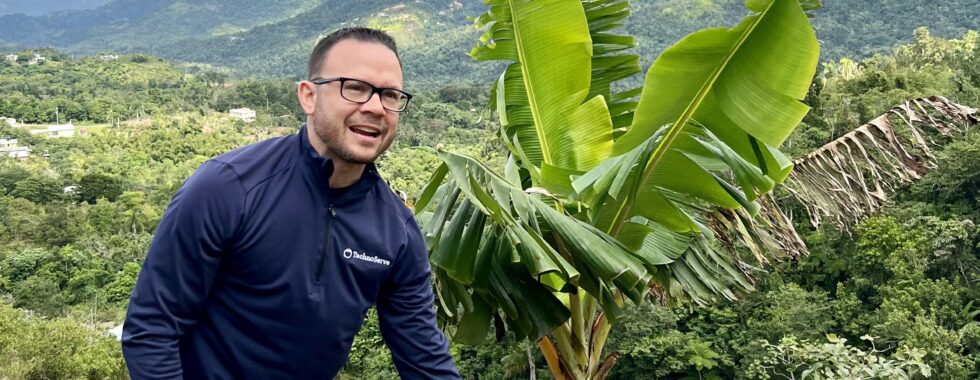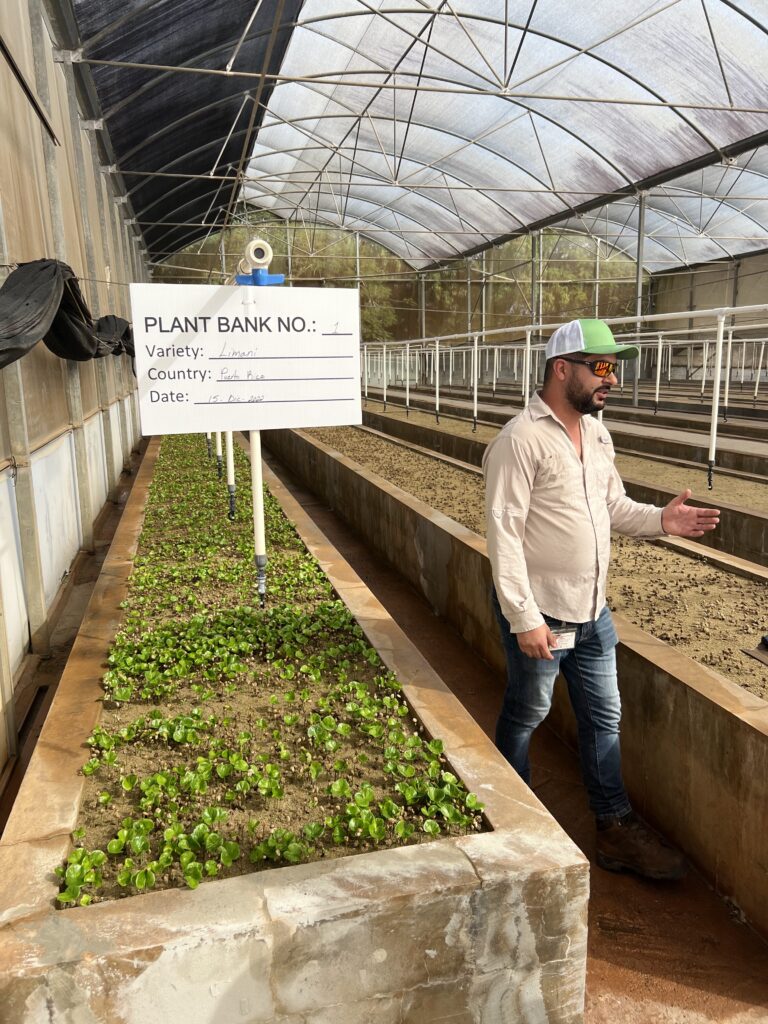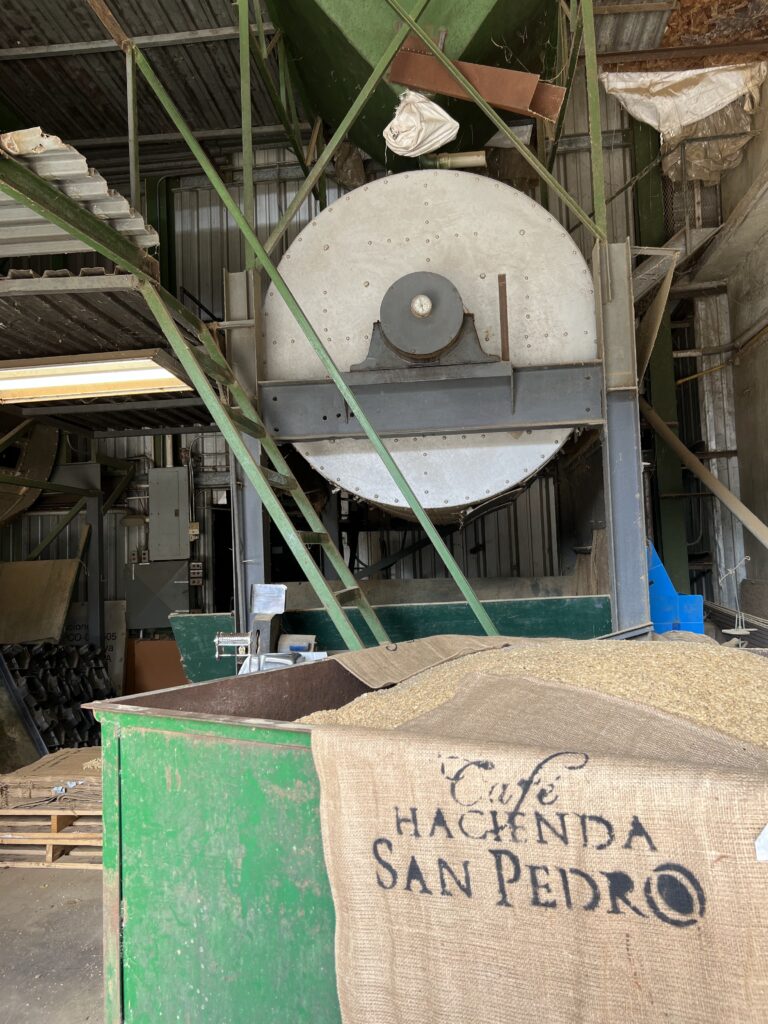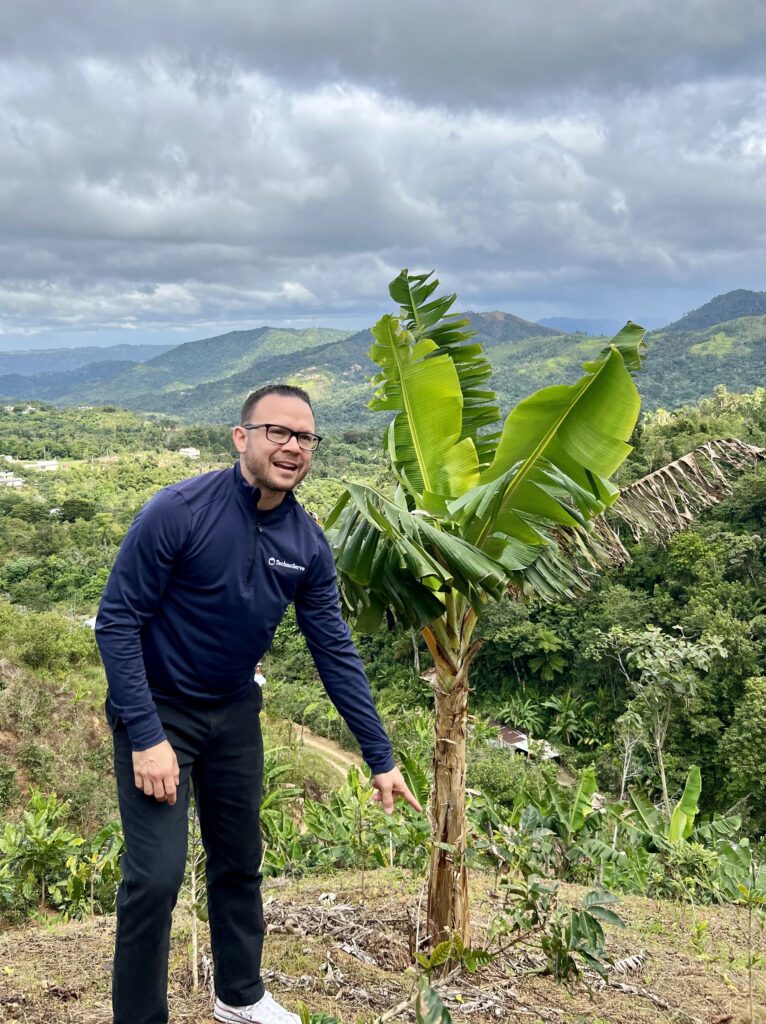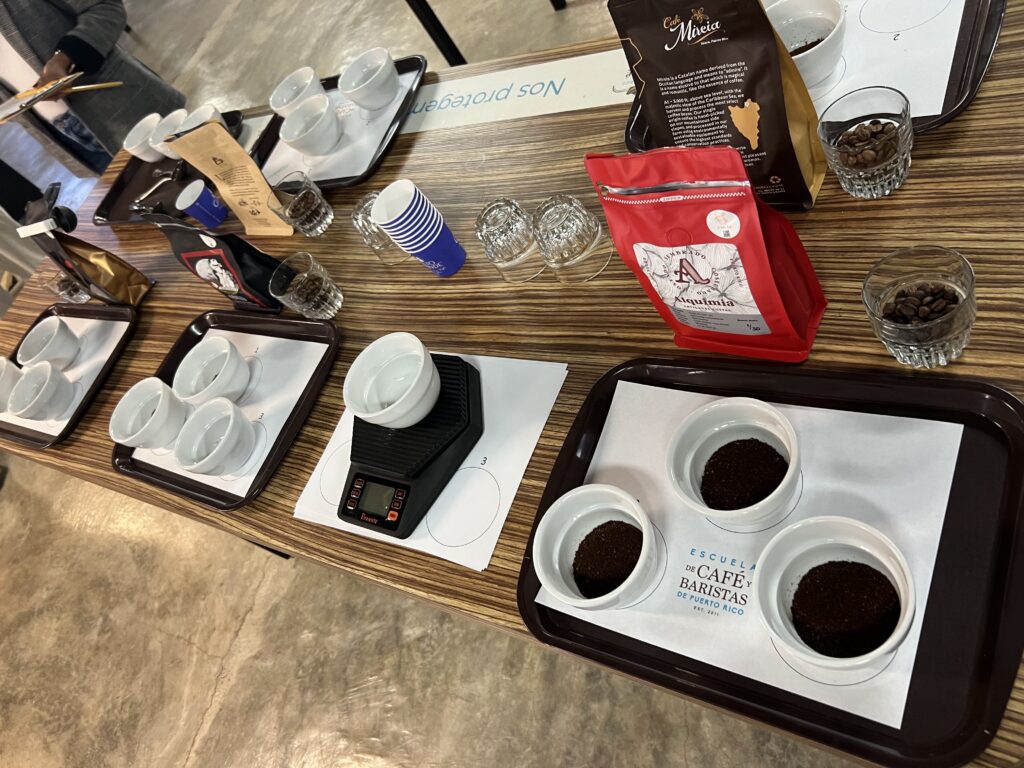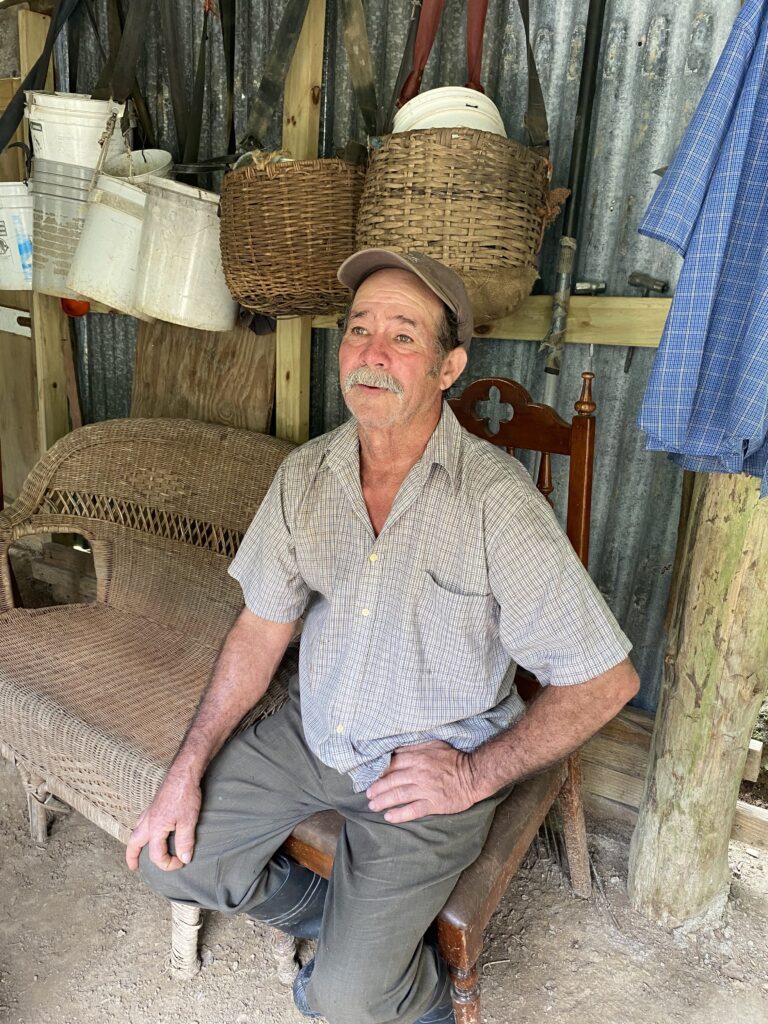KickStart International is a nonprofit social enterprise with a mission to lift millions of people out of poverty quickly, cost-effectively, and sustainably by selling affordable irrigation pumps to small-scale farmers. The West Foundation is pleased to share this update on their behalf:
KickStart continued its program to build sustainable, profitable, and climate resilient farming enterprises across sub-Saharan Africa (SSA), as rural communities face the compounding challenges of a historic drought, the Covid-19 pandemic, and economic crisis. In 2022, KickStart quickly adapted to respond to the new context, empowering more than 50,000 women, men, and children across SSA to move out of poverty—35% more than in FY21.
We set our sights to the challenges and aspirations of a new day, unveiling a new logo, designed to represent KickStart’s vision for change – the continental transformation that is possible through irrigation.
The pandemic continues to have prolonged effects on Africa’s smallholders, who remain responsible for feeding their families and neighbors, despite extraordinary economic and climatic shocks. The crisis in Ukraine has further exasperated the food security situation in Kenya and countries across East Africa, which rely heavily on wheat and fertilizer imports from Ukraine and Russia. As combined economic and environmental forces increase production demands on smallholders, the rising cost of agricultural inputs is diminishing their capacities to respond.
At this critical juncture, KickStart is working with local and national government partners to advance this important agenda, in a joint effort to extend irrigation solutions to the most vulnerable farmers. At the grassroots, we have worked to expand financial access to the lowest income bracket by increasing the reach of our most affordable irrigation innovation, the Starter Pump, and creating linkages with farmer friendly loans and local financing partners. KickStart made investments in its targeted marketing and promotional strategy, driving direct to farmer sales through the local supply chain via wide-reaching radio campaigns. Meanwhile, KickStart introduced its MoneyMaker pumps and training services to an increased number of NGO and INGO partners, working with their program teams to boost livelihoods, food security, and climate resilience.
In 2023, KickStart will continue to expand its impacts and irrigation tools across sub-Saharan Africa to lift thousands more men, women, and children out of poverty quickly, cost-effectively, and efficiently.
